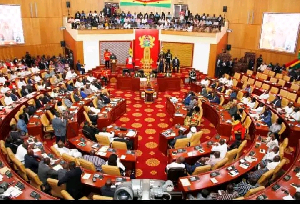
The recent actions in Ghana's Parliament, where NDC MPs occupied the majority side despite a Supreme Court ruling to maintain the status quo, has raised significant concerns about the future of our democracy and the respect for the rule of law. This defiance of the court’s decision and the subsequent walkout by NPP MPs is not just a reflection of political rivalry but poses deeper questions about the strength of our institutions and adherence to democratic principles.
The separation of powers is a foundational aspect of any functioning democracy, ensuring that no single branch – executive, legislature, or judiciary – can dominate or undermine the others. When Parliament, as the legislative body, ignores a ruling from the judiciary, it sets a worrying precedent. It suggests that our institutions may no longer be guided by the rule of law, but by partisan interests. This erosion of respect for judicial authority can have far-reaching consequences for governance, creating an environment where decisions are driven by power plays rather than due process.
For the NDC, occupying the majority seats may seem like a symbolic victory, especially ahead of elections, but this act raises questions about their commitment to the democratic framework they aim to govern under. Similarly, the NPP's walkout can be seen as a protest against the disregard for judicial authority, but it also highlights a troubling trend of political parties resorting to dramatic exits rather than seeking resolution through debate and dialogue.
Moving forward, this incident risks deepening political divides and weakening public confidence in our democratic processes. If our leaders, both in Parliament and outside, fail to uphold the rule of law, it could lead to a culture of disregard for legal rulings, which is detrimental to the very fabric of our democracy. For Ghana’s future, it is crucial that all political actors reaffirm their commitment to respecting the rule of law and working within the framework of our democratic institutions, no matter how contentious the issue at hand.
What's your mind? Share your thoughts with us.